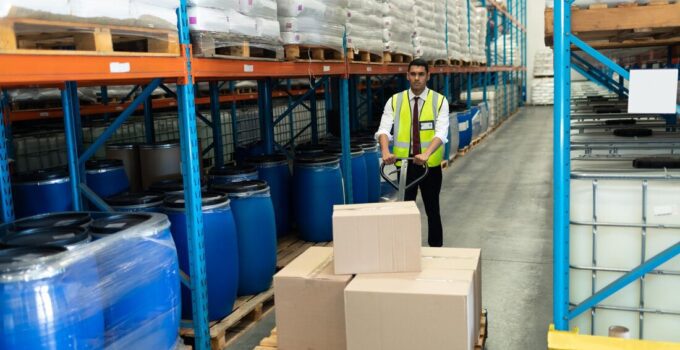Developing industry standards is a key way to shape regulations. Also, to improve how surplus inventory is managed across businesses with care and proper control.
Standards create clear rules and best practices that everyone can follow. This way, there is not really an issue behind not knowing what to do or how to manage most issues when working with development.
In the process, businesses are able to make surplus operations safer, more efficient, and more sustainable.
At Coastal Surplus Solutions, we are experts through all steps. We have been working in the industry for over a decade and understand that regulations have control over surplus. However, this does not mean it is bad as a whole.
They help control how processes and transactions are performed and maintain everyone involved safely. This prevents scams, frauds, or issues with surplus items and goods.
However, it does take time to adapt to the leading regulatory changes in surplus. With new additions or changes every year, it is only natural having to work on more specific adaptations.
We can guide you through this, starting now.
How Industry Standards Are Created
Creating a standard is a careful, step-by-step process that involves many experts working together. No, it isn’t something that comes out of nowhere and is defined by any random person.
It usually starts with an idea to solve a common problem or improve a process. Then, a group of professionals from different companies and organizations come together to draft the standard.
This draft goes through several rounds of review and feedback. It goes through changes, adaptations, and all types of steps. Up to the point of making it perfect and having the right regulation in place.
Through this process, experts discuss and revise the document until they reach an agreement. Once everyone agrees, the standard is officially approved and published for companies to use.
This process is open and transparent, allowing anyone affected by the standard to participate. It ensures the final rules are fair, practical, and widely accepted.
In other words, you are not simply forced to work with it and follow blindly. You can even take part in its development when part of the industry.

Why Standards Matter for Surplus Operations
Standards help surplus companies by:
- Setting Clear Expectations.
If there is something most people hate is not knowing what to expect next.
With standards, everyone knows the rules for handling, storing, and selling surplus inventory. This also means that clients, customers, and partners know everything and have clear expectations of how operations will unfold.
- Improving Safety and Compliance.
Standards reduce risks related to product quality, environmental impact, and legal requirements.
This is perfect for customers because they know that if a company follows them and is compliant, then they will be able to rely on it.
- Encouraging Innovation.
Clear guidelines help companies develop new technologies and methods for surplus management. Not everything has to be black or white. Instead, regulations encourage companies for changes, but all by following ethics and safety.
- Supporting Regulatory Change.
Standards often lead the way for new laws and regulations by showing what works best in the industry.
If multiple experts came to an agreement, it must be because of a reason.
You can notice how much these regulatory changes make your life easier and even boost your business. It is all about implementation and how to get it done.
How Standards Influence Regulatory Change
Once a standard is published and widely adopted, regulators often use it as a basis for laws and rules. After all, every person or party involved should know about the standards.
It is more comfortable and easier to handle a single guide than jumping from one option to another.
This helps create consistent regulations that reflect industry best practices. Standards also make it easier for companies to comply.
You can focus on all the regulations and rules, but won’t feel overwhelmed by them. After all, you can simply work with the guidelines provided.
In surplus management, standards can address issues like environmental disposal, safety procedures, and inventory tracking, leading to better regulatory frameworks.
They are truly designed for everything and for everyone.
The Small Business Bureau and experts in the surplus industry highlight the importance of compliance. Thus, delaying regulatory standards only comes with more issues than not.
Feel free to contact us if you need a company supporting you and we can be there to help you through it.




